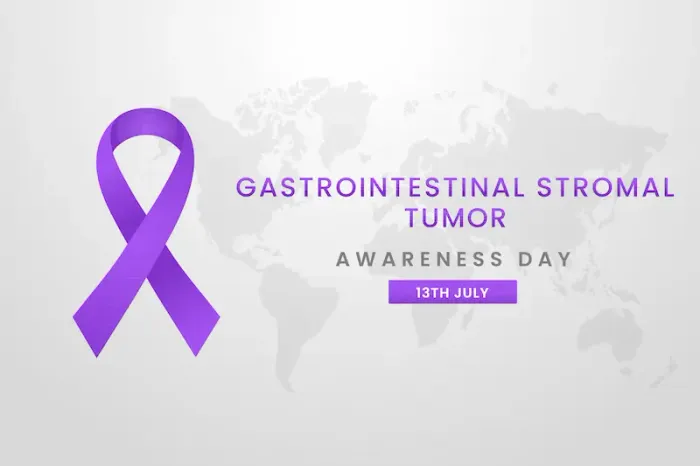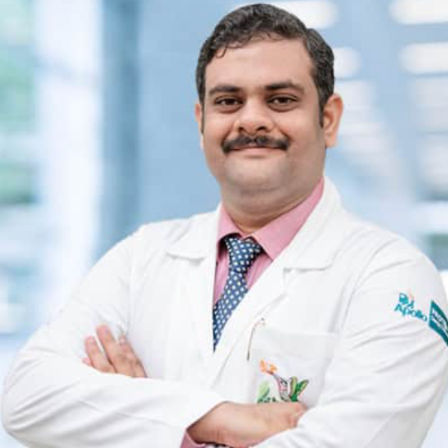Your Guide to Gastrointestinal Cancers & 8 Tips to Lower Your Risk
Learn about gastrointestinal cancers, their symptoms, risk factors, and 8 actionable tips to reduce your risk. Empower yourself with evidence-based prevention strategies for long-term digestive health.

Written by Dr. M L Ezhilarasan
Reviewed by Dr. D Bhanu Prakash MBBS, AFIH, Advanced certificate in critical care medicine, Fellowship in critical care medicine
Last updated on 13th Jan, 2026

Introduction
Your gastrointestinal (GI) tract is a complex, long tube running from your mouth to your anus, responsible for digesting food, absorbing nutrients, and expelling waste. Gastrointestinal cancers occur when cells in any part of this system, including the oesophagus, stomach, liver, gallbladder, pancreas, small intestine, colon, rectum, and anus, grow uncontrollably, forming malignant tumours.
These cancers make up a significant portion of diagnoses worldwide. While a cancer diagnosis can be daunting, there is hope. Many gastrointestinal cancers are preventable, and early detection dramatically improves outcomes. This guide explains the different types of GI cancers, highlights warning signs, and provides eight practical tips you can begin implementing today to lower your risk and support long-term health.
The Major Types of Gastrointestinal Cancers
Understanding the different types of gastrointestinal cancers helps you recognise potential risks and take preventive measures.
1. Oesophagal Cancer: A Cancer of the Food Pipe
The oesophagus is the muscular tube connecting your throat to your stomach. Adenocarcinoma is often linked to chronic acid reflux and Barrett's oesophagus, while squamous cell carcinoma is commonly associated with smoking and alcohol. Early symptoms may include difficulty swallowing or persistent indigestion.
2. Stomach (Gastric) Cancer: More Than a Stomach Ache
Stomach cancer usually begins in the lining of the stomach. Long-term infection with the bacterium Helicobacter pylori is a major risk factor, alongside a diet high in smoked, salted, or pickled foods, smoking, and family history. Symptoms often appear late and can include unexplained weight loss, abdominal pain, and a feeling of fullness after small meals.
3. Liver Cancer: Primary and Secondary Forms
Hepatocellular carcinoma is the most common liver cancer. It often develops in a liver damaged by chronic hepatitis B or C infection, cirrhosis from alcohol use, or non-alcoholic fatty liver disease. Early detection is challenging, so prevention of underlying liver conditions is crucial.
4. Pancreatic Cancer: A Challenging Diagnosis
The pancreas produces digestive enzymes and hormones like insulin. Pancreatic cancer is often silent, with jaundice, weight loss, and abdominal pain appearing in advanced stages. Risk factors include smoking, chronic pancreatitis, diabetes, and family history.
5. Colorectal Cancer: Cancers of the Colon and Rectum
Colorectal cancer commonly starts as a small, non-cancerous polyp that can progress to cancer over time. Screening, such as colonoscopy, can detect and remove polyps before they become malignant. Symptoms include changes in bowel habits, rectal bleeding, and persistent abdominal discomfort.Consult Top Medical Oncologists
Don't Ignore These Warning Signs: Common Symptoms of GI Cancers
Recognising symptoms early can make a difference. Persistent or unexplained symptoms should prompt medical advice. Consult a doctor online with Apollo24|7 if these signs last longer than two weeks:
• Persistent indigestion or heartburn
• Unexplained weight loss
• Abdominal pain or discomfort
• Changes in bowel habits
• Rectal bleeding or blood in stool
• Difficulty swallowing (dysphagia)
• Weakness or fatigue
• Jaundice
Who is at Risk? Key Factors for Gastrointestinal Cancers
Some risk factors are beyond our control, while others can be modified to reduce risk.
• Non-Modifiable Risks: Age, family history, and inherited genetic syndromes (like Lynch syndrome).
• Modifiable Risks: Tobacco use, heavy alcohol consumption, obesity, poor diet, and certain chronic infections (H. pylori, Hepatitis).
8 Actionable Tips to Reduce Your Risk of Gastrointestinal Cancers
Taking proactive steps can significantly reduce your risk.
Tip #1: Embrace a Fibre-Rich, Plant-Forward Diet
A diet rich in fruits, vegetables, and whole grains supports digestive health. Fibre helps move food efficiently through the digestive tract, reducing contact with potential carcinogens. Include a variety of colourful plant foods to gain antioxidants and phytochemicals.
Tip #2: Limit Red and Processed Meats
High intake of red meat (beef, pork, lamb) and processed meats (bacon, sausages, hot dogs, deli meats) is linked to colorectal cancer. Opt for healthier proteins such as fish, poultry, beans, and lentils.
Tip #3: Maintain a Healthy Weight
Obesity increases the risk of oesophageal, colorectal, pancreatic, and liver cancers. Excess body fat can trigger inflammation and hormone changes that promote cancer growth.
Tip #4: Exercise Regularly
Regular physical activity helps regulate hormones, boost immunity, and maintain a healthy weight. Aim for 150 minutes of moderate-intensity exercise or 75 minutes of vigorous activity weekly.
Tip #5: Drink Alcohol in Moderation (Or Not at All)
Alcohol is a known carcinogen for cancers of the mouth, throat, oesophagus, liver, and colon. Limit intake to one drink per day for women and two for men, or avoid alcohol entirely.
Tip #6: Don't Smoke or Use Tobacco
Tobacco is the leading preventable cause of cancer, linked to cancers of the oesophagus, stomach, and pancreas. Quitting provides immediate and long-term health benefits.
Tip #7: Get Vaccinated (Hepatitis B & HPV)
Hepatitis B vaccination prevents liver cancer, while HPV vaccination protects against HPV-related cancers of the throat and anus.
Tip #8: Attend Recommended Cancer Screenings
Screenings detect cancer early or even prevent it. Colonoscopy can remove precancerous polyps, reducing colorectal cancer risk. Discuss the appropriate schedule with your doctor. Apollo24|7 offers home collection for relevant tests and can help schedule screenings.
Conclusion: Empowerment Through Proactive Health
Understanding gastrointestinal cancers allows you to take control of your health. While some risks are unavoidable, daily choices, such as healthy eating, physical activity, avoiding harmful substances, vaccination, and regular screening, offer substantial protection. These eight tips are sustainable steps to support long-term digestive health. If symptoms persist or concerns remain, book a consultation with a doctor through Apollo24|7. Your health is your most valuable asset—protect it proactively.Consult Top Medical Oncologists
Consult Top Medical Oncologists

Dr. Sanchayan Mandal
Medical Oncologist
17 Years • MBBS, DrNB( MEDICAL ONCOLOGY), DNB (RADIOTHERAPY),ECMO. PDCR. ASCO
Kolkata
MCR SUPER SPECIALITY POLY CLINIC & PATHOLOGY, Kolkata
Dr Sumanth R
General Physician
2 Years • MBBS
Bengaluru
PRESTIGE SHANTHINIKETAN - SOCIETY CLINIC, Bengaluru

Dr.sanchayan Mandal
Medical Oncologist
17 Years • MBBS, DrNB( MEDICAL ONCOLOGY), DNB (RADIOTHERAPY),ECMO. PDCR. ASCO
Kolkata
Dr. Sanchayan Mandal Oncology Clinic, Kolkata

Dr Prasad Eswaran
Medical Oncologist
22 Years • MBBS,DMRT,MD,DM
Chennai
Apollo Proton Cancer Center, Chennai
(25+ Patients)

Prof Dr. Anita Ramesh
Medical Oncologist
25 Years • MBBS (Hons) DCH (UK), MD, Dip NB, DM (Medical Oncology), MSc Oncology (UK), MBA, PhD Fellowship and Training in the USA and Europr
Chennai
Apollo Speciality Hospitals Vanagaram, Chennai
Consult Top Medical Oncologists

Dr. Sanchayan Mandal
Medical Oncologist
17 Years • MBBS, DrNB( MEDICAL ONCOLOGY), DNB (RADIOTHERAPY),ECMO. PDCR. ASCO
Kolkata
MCR SUPER SPECIALITY POLY CLINIC & PATHOLOGY, Kolkata
Dr Sumanth R
General Physician
2 Years • MBBS
Bengaluru
PRESTIGE SHANTHINIKETAN - SOCIETY CLINIC, Bengaluru

Dr.sanchayan Mandal
Medical Oncologist
17 Years • MBBS, DrNB( MEDICAL ONCOLOGY), DNB (RADIOTHERAPY),ECMO. PDCR. ASCO
Kolkata
Dr. Sanchayan Mandal Oncology Clinic, Kolkata

Dr Prasad Eswaran
Medical Oncologist
22 Years • MBBS,DMRT,MD,DM
Chennai
Apollo Proton Cancer Center, Chennai
(25+ Patients)

Prof Dr. Anita Ramesh
Medical Oncologist
25 Years • MBBS (Hons) DCH (UK), MD, Dip NB, DM (Medical Oncology), MSc Oncology (UK), MBA, PhD Fellowship and Training in the USA and Europr
Chennai
Apollo Speciality Hospitals Vanagaram, Chennai
Frequently Asked Questions
Q1. Are gastrointestinal cancers hereditary?
While most cases are sporadic, 5-10% are linked to inherited mutations. Strong family history warrants genetic counselling.
Q2. What is the survival rate for gastrointestinal cancers?
Survival depends on cancer type, stage at diagnosis, and individual factors. For instance, early-stage colorectal cancer has an over 90% five-year survival rate.
Q3. Can acid reflux really lead to cancer?
Chronic acid reflux can cause Barrett's oesophagus, increasing oesophageal cancer risk. Lifestyle changes and medication can manage GERD.
Q4. How often should I get a colonoscopy?
Average-risk individuals start screening at age 45, repeating every 10 years if no polyps are found. Higher-risk patients may need earlier or more frequent screening.
Q5. Is there a link between gut health and cancer?
A healthy gut microbiome, supported by a fibre-rich diet, may reduce inflammation and potentially lower cancer risk.